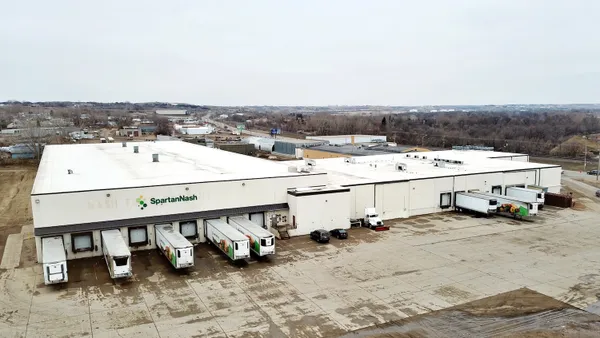Amid the landscape of battles over worker classifications in the gig economy, Shipt recently shared support for a way to offer additional financial security to independent contractors without changing their classification.
The Target-owned e-commerce provider said last week in a blog post that it supports portable benefits, a legal framework that would allow the company to provide benefits while retaining its workers’ independent contractor status.
“While Shipt currently offers competitive pay and a range of perks, we support changes to the law that would allow shoppers and drivers access to additional benefits without jeopardizing the flexibility and independence they value most,” Shipt said in the post, noting that creating benefits offerings currently could “chip away at independent contractor classification for workers.”
The portable benefits model has gig companies provide funds that workers have the option to put toward benefits of their choice, meaning that benefits are tied to an individual worker rather than to a company, Shipt said. For example, workers could choose to put the funds toward health insurance, sick leave, retirement, tuition reimbursement or child care.
“Shoppers and drivers choose to work with Shipt for unique reasons and a one-size-fits-all benefits solution simply doesn’t help them. ... Many shoppers use our platform solely to earn extra income and already have access to traditional benefits through their employer,” Shipt said in the post. The company disclosed that more than half of its personal shoppers last year had traditional full-time employment in addition to their work for Shipt, based on a nationwide survey of 200,000 shoppers.
This model would allow workers to accrue and combine funds offered by multiple companies, Shipt said. The company shared that nearly 70% of its personal shoppers last year earned money on other platforms, according to a nationwide survey of 560 shoppers.
Shipt’s recent post comes at a time when gig companies have battled lawsuits in recent years over worker classifications as state and federal officials consider stronger protections for independent contractors.
Last October, Shipt was hit with separate lawsuits from the attorneys general for Minnesota and Washington, D.C., alleging the company misclassified its workers as independent contractors to avoid labor costs and also violated several worker protections.
That same month, Instacart agreed to a $46.5 million settlement for a 2019 lawsuit brought by the San Diego City Attorney’s Office that claimed the grocery technology company misclassified its workers as independent contractors instead of as employees.
Earlier this year, the National Conference of State Legislatures, a nonpartisan public officials association, said in a blog post that the portable benefits model is increasingly gaining traction among legislatures and businesses, but noted that a myriad of questions remain about how to roll out the model.













